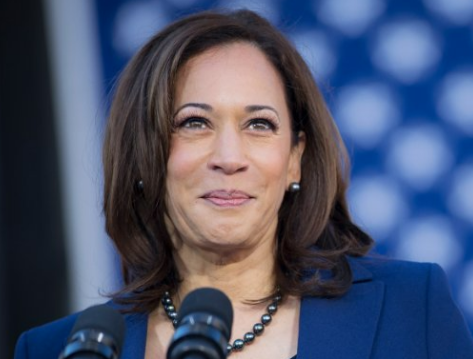Republican nominee Donald Trump has labeled her as “crazy,” “nuts,” and “dumb as a rock.” Congressional Republicans dismiss her as merely a diversity hire. Right-wing activists and online trolls have targeted her with racist, sexist, and sexualized insults.
Kamala Harris, the first woman and the first Black and South Asian person to serve as U.S. vice president, has faced increasing attacks since garnering support as the Democrats’ likely presidential nominee.
These demeaning racist and sexist remarks risk overshadowing the Republican Party’s strategic focus on critiquing Harris’ policies. Trump allies, including members of the “Black Americans for Trump” coalition, caution that such attacks on Harris could damage his outreach to Black voters, a critical demographic for the November 5 presidential election.
Interviews with nine Republican lawmakers and eleven Black Republican women who support Trump revealed that eight of them believe personal attacks on Harris should be avoided. While they remain cautious in their comments and emphasize their continued support for Trump, several expressed concern about the nature of the attacks and the potential negative impact on Republicans at the polls.
“I think there is a way to critique her without going underneath her clothes,” said P Rae Easley, a Black conservative radio show host in Chicago and a member of the “Black Americans for Trump” coalition, a loosely organized group of Black allies backing Trump.
Several members of Congress echoed her sentiments.
“I’m going to oppose Vice President Harris because of what she’s done, not who she is,” said Representative Dusty Johnson, who chairs the 75-member Republican Main Street Caucus. “Some of this ugliness is unbecoming of a great country.”
Others said the attacks on Harris’ personal life were no different than Democrats attacking Trump over his personal and family life.
“It’s a nasty fight. Democrats have a tendency to play victim,” said Madgie Nicolas, co-chair of Haitians for Trump and the Faith and Freedom Coalition’s national director of African American voices.
The tension suggests Trump campaign efforts to tie Harris to President Joe Biden’s record – particularly on immigration, crime and the economy – risk being overshadowed by personal attacks that show no signs of slowing.
“Going after Kamala Harris as a ‘DEI hire’ is breathtakingly stupid,” said Republican pollster Whit Ayres, who has worked on campaigns for U.S. Senator Marco Rubio, Florida Governor Ron DeSantis and others.
“It’s going to backfire,” Ayres said, adding that Harris had an “incredible array of far left-wing policies” that could be targeted.
DEI stands for “diversity, equity, and inclusion,” which are initiatives aimed at increasing the representation of women and people of color in the workforce to address longstanding inequities and discrimination. The term “DEI hire” has come to imply that a person is unqualified for their role and has been chosen solely based on their race or gender.
Ayres noted that such disparaging rhetoric would alienate women and “anyone who isn’t far-right.” The Trump campaign did not directly respond to questions about whether it had considered toning down personal attacks on Harris. According to rhetoric experts, critics, and past public opinion polls, Trump’s inflammatory rhetoric has emboldened individuals with racist beliefs to express them.
The former president has a history of attacking political opponents, including other Black women in power, such as Fulton County District Attorney Fani Willis, who is prosecuting his election interference case in Georgia, and U.S. District Judge Tanya Chutkan, who is handling the federal case against him for attempting to overturn the 2020 election results.
At a rally in North Carolina on Wednesday, Trump did not attack Harris on gender or racial grounds but instead portrayed a potential Harris presidency in apocalyptic terms, calling her a “radical left lunatic who will destroy our country.” Trump spokesperson Karoline Leavitt stated that voters would reject Harris not because of her race and gender but because of her failed policies.
A spokesperson for Harris, whose nascent campaign has generated significant grassroots fundraising and activism, said she is staying focused on her work. “These attacks are backfiring and even Republicans know it,” said Sarafina Chitika.
Online attacks against Harris were ramping up even before Biden dropped out on Sunday, according to researchers and a Reuters review of posts on the X platform, although exact data is hard to come by.
Some of the recent posts refer to sexual acts and speak of Harris’ past relationships in lewd terms. Others disparage her for not having biological children, echoing a comment Trump running mate JD Vance made in 2021, when he criticized Harris and other Democrats as “a bunch of childless cat ladies who are miserable at their own lives.”
Harris has two stepchildren with her husband, lawyer Doug Emhoff. Emhoff’s ex-wife on Wednesday called such attacks “baseless” and described Harris as a “loving, nurturing, fiercely protective” co-parent.
Disinformation researchers say the online attacks do not appear to be coming from a specific epicenter and are now so prevalent that most accounts are merely “amplifiers” of already-existing narratives.
U.S. Representative Michael Cloud, a member of the ultraconservative House Freedom Caucus, defended Republicans who have disparaged Harris as a “DEI hire.”
“Those were Biden’s words, actually,” Cloud said.
Biden has not called Harris a “DEI hire.”
At a campaign appearance with Harris in May, he spoke of the values of DEI and having a diverse administration. “And it starts at the top with the vice president,” Biden said.
Trump has nicknamed Harris “Laffin’ Kamala,” mocking her laugh, and “Lyin’ Kamala,” claiming she tried to hide Biden’s aging from the public. At a Sunday rally in Grand Rapids, Michigan, the former president called her “crazy” and “nuts.”
Kelly Dittmar, a political science professor at Rutgers University, said the nicknames appeared to be playing into stereotypes about women’s voices and emotions, as well as seeking to emulate African American pronunciation.
“The actual laughing and cackling goes back to tropes about not wanting to hear women’s voices,” Dittmar said.
“It’s not the laugh itself. It’s to characterize her as annoying. I think the nicknames are trying to cue the fact she’s Black.”
Republican House Speaker Mike Johnson, who attended a closed-door meeting this week where party leaders urged members to concentrate on policy issues, told Reuters on Thursday that he had not spoken to Trump or the Trump campaign about how to message regarding Harris.
“This campaign will be about policies,” Johnson said. “And I think everybody will be discussing that in detail, and I think we’ll win on that basis.”
Easley, the radio show host, said she suggested to Trump campaign officials they engage Black allies more to counter Harris “without the veil of racism being attached to it.”
She and several other Black Republican women who spoke to Reuters said they did not like the personal attacks, with some noting their own experiences confronting higher standards and expectations as Black women, or having their qualifications questioned.
“As a Black woman myself, I don’t appreciate when people start saying because of the color of your skin, that makes you a DEI hire. I don’t think that’s fair to anyone,” said Corrin Rankin, vice chair of the California Republican Party, who said she met Harris when they both worked in San Francisco.
However, Rankin said she felt Biden’s vow to pick a woman or person of color as his running mate in 2020 had allowed that term to take hold.
Other Trump allies warned that his attacks could alienate some voters.
“I am hoping that his advisers will encourage Trump to pull it back,” said Camilla Moore, chair of the Georgia Black Republican Council.
“Because it could hurt in the long run.”



